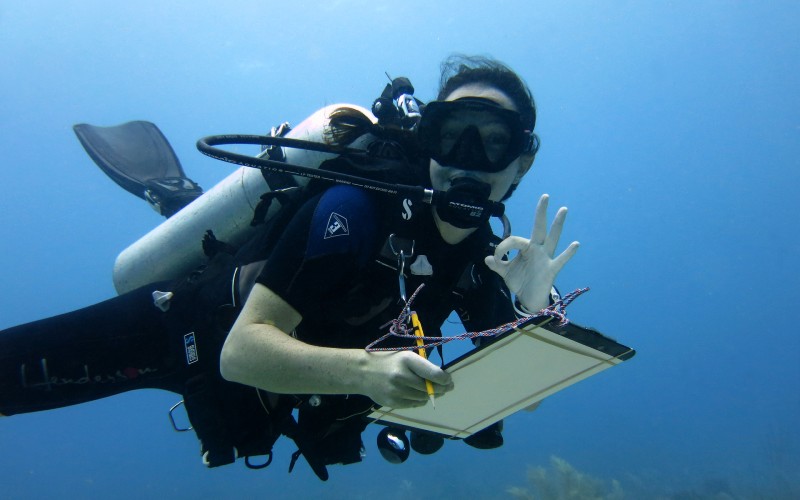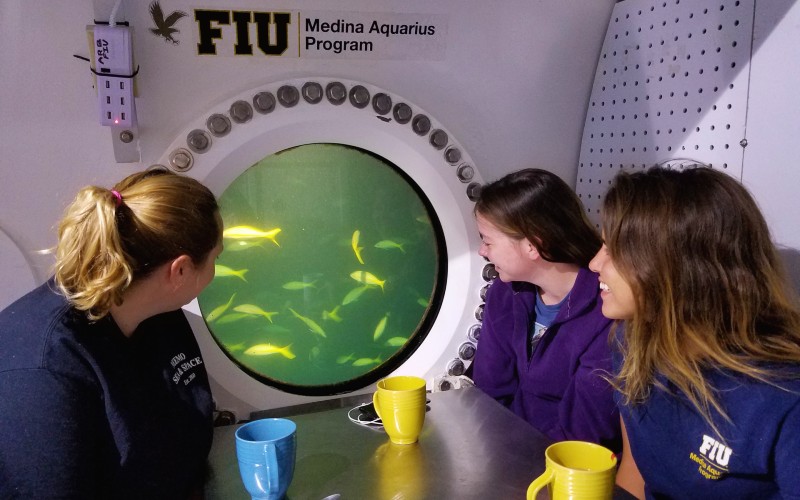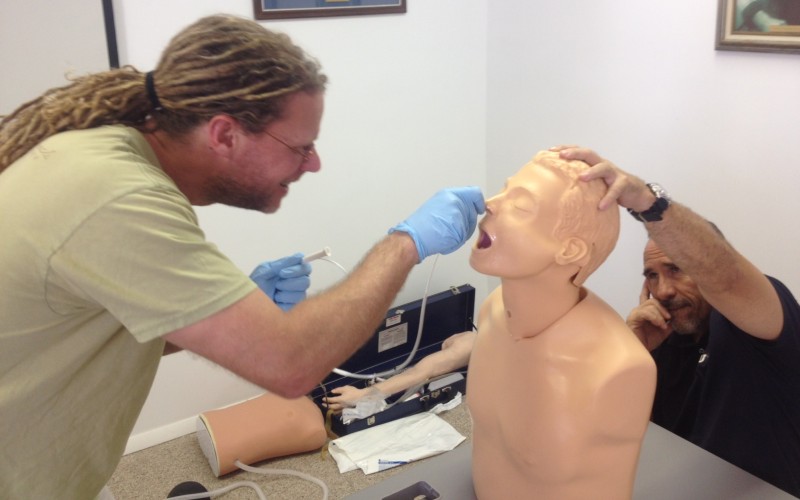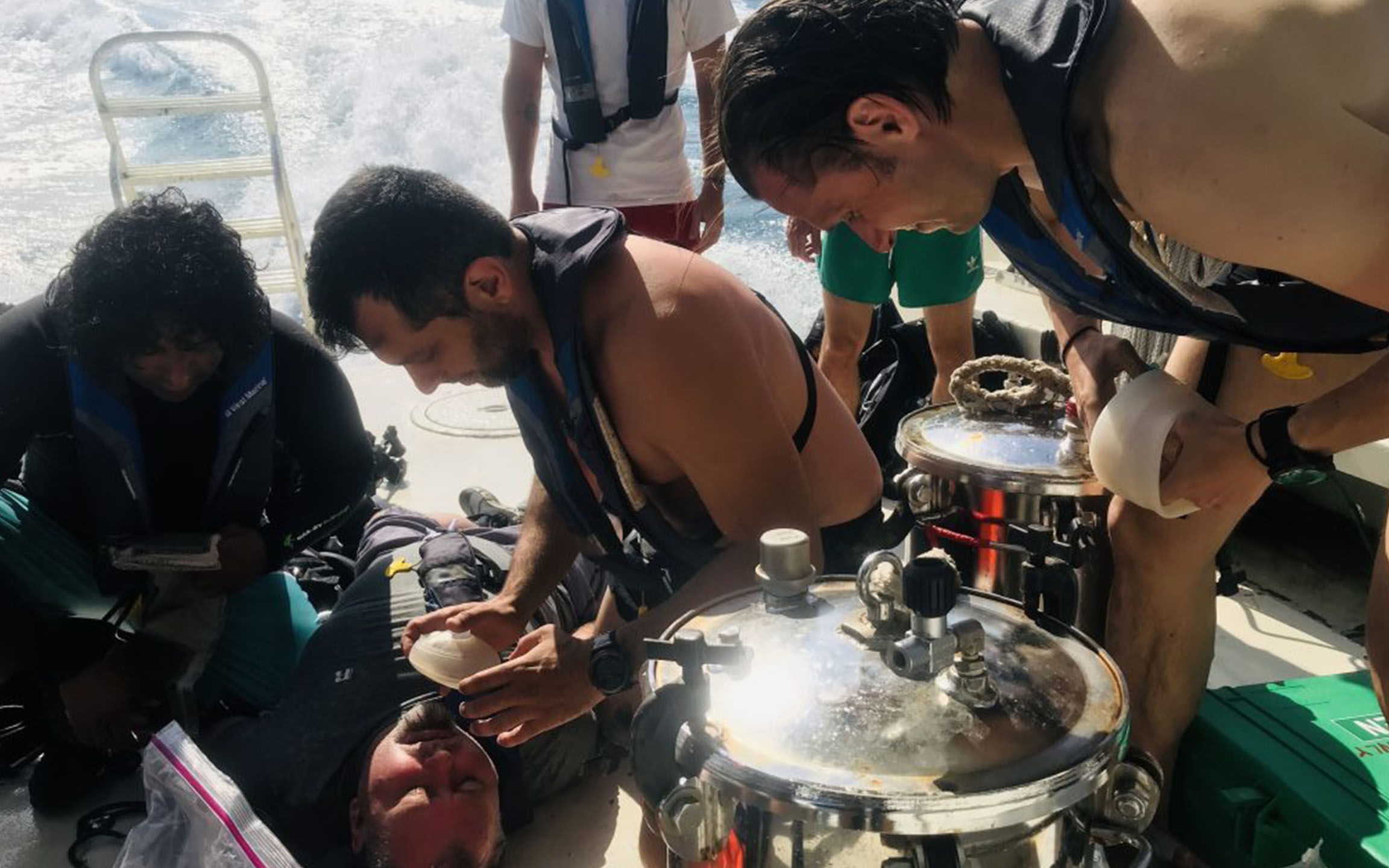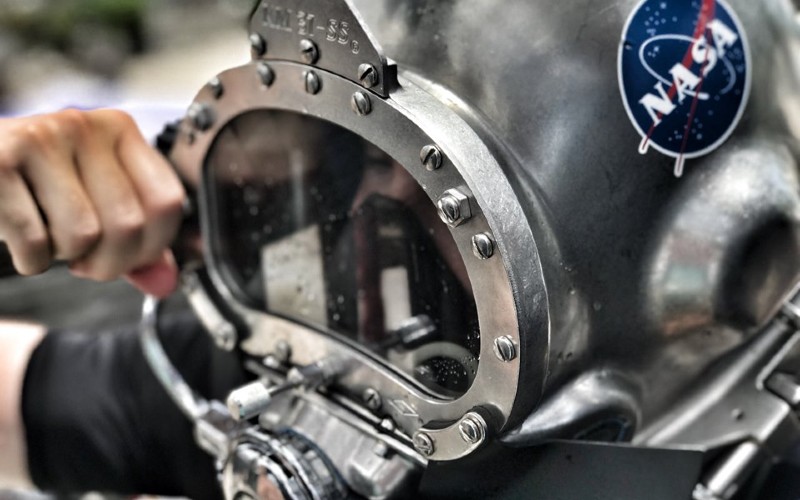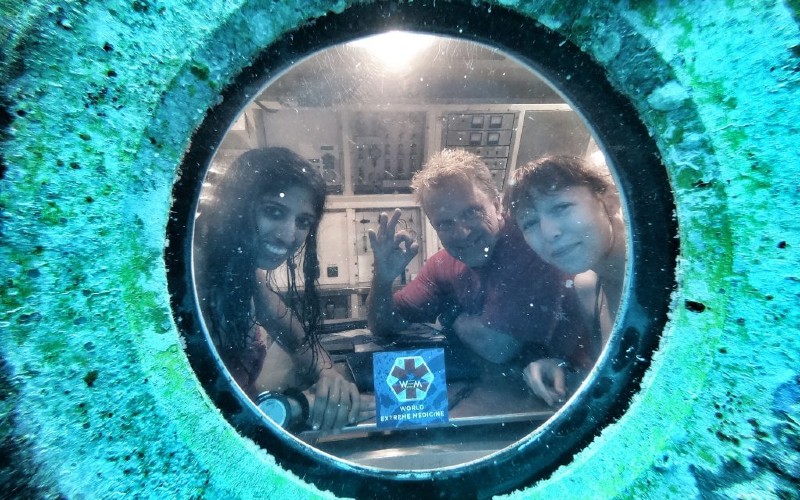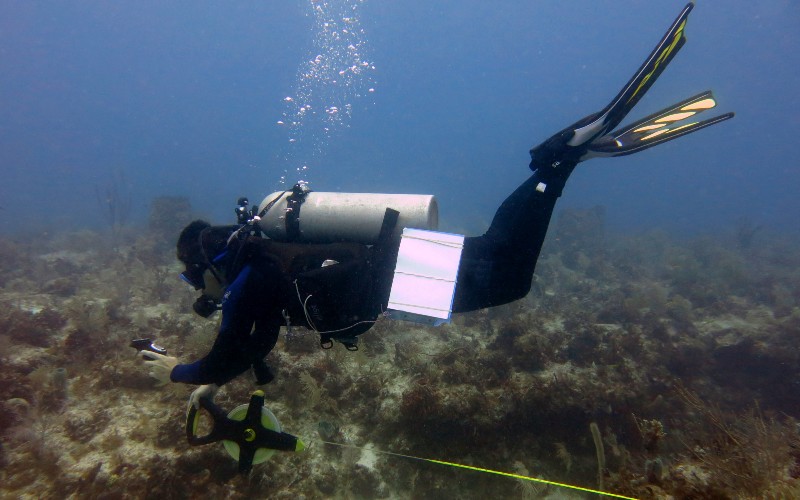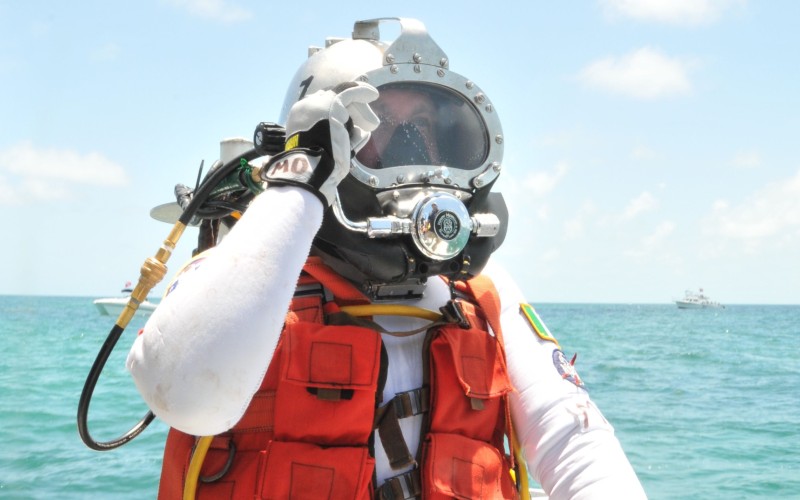The Aquarius Advanced Training Program is the adult instruction enterprise designed for postsecondary students, recent graduates, seasoned professionals and lifelong learners who desire to continue to build their learning experiences. The Program includes discrete, but complementary courses that vary in subject matter, student content engagement mode, course duration length and credit.
All courses are led by Reef Base staff and most place a special emphasis on activities directly associated with the Aquarius undersea laboratory. For non-divers and remote learners, many courses can be completed online. For others, in-class instruction and hands-on experiential skills development at the Reef Base facility in Islamorada, Florida is required for certification or credit.
FIU Micro-Credential & Continuing Education Courses
Working with FIU’s Office of Micro-Credentials, housed within the Division of Academic & Student Affairs, students successfully completing the following courses earn micro-credentials. Micro-credentials are a competency-based form of skills validation and are based in assessment best practices, aligned to industry or postgraduate needs, and culminate in a reflective experience. Micro-Credentials are digital representations of learning achievement, designed so that students can share the skills they’ve gained. While not a replacement for certificates, minors, or degree programs, micro-credentials are a supplemental designation to provide evidence that students are working towards mastering critical competencies. The option to earn Continuing Education Units (CEUs) from FIU Academic Planning and Accountability – Continuing Education (APA-CE) is also available.
These courses are open to all learners.
Courses for Medical Professionals
The Medina Aquarius program offers unique opportunities for professional training in diving medicine. These courses are designed to train a range of students including physicians, emergency medical personnel, and commercial and military divers in the identification and treatment of diving-related injuries. By incorporating a range of facilities including the Aquarius undersea lab, a shore-based recompression chamber and a vessel-based transportable recompression chamber, these courses offer a robust training experience that cannot be replicated anywhere else.
This course is restricted to certified medical personnel only.
Intra-University Courses & Specialized Training
Medina Aquarius Program offers specialized courses designed to support and enhance field research activities conducted by FIU science teams. Courses include training in emergency medical care for those working in terrestrial and aquatic environments and in the use of specialized diving equipment to support advanced marine field research activities.
Contact Us
FIU Aquarius Reef Base
85932 Overseas Highway
Islamorada, FL 33036
Inquiries: aquarius@fiu.edu or contact a team member
